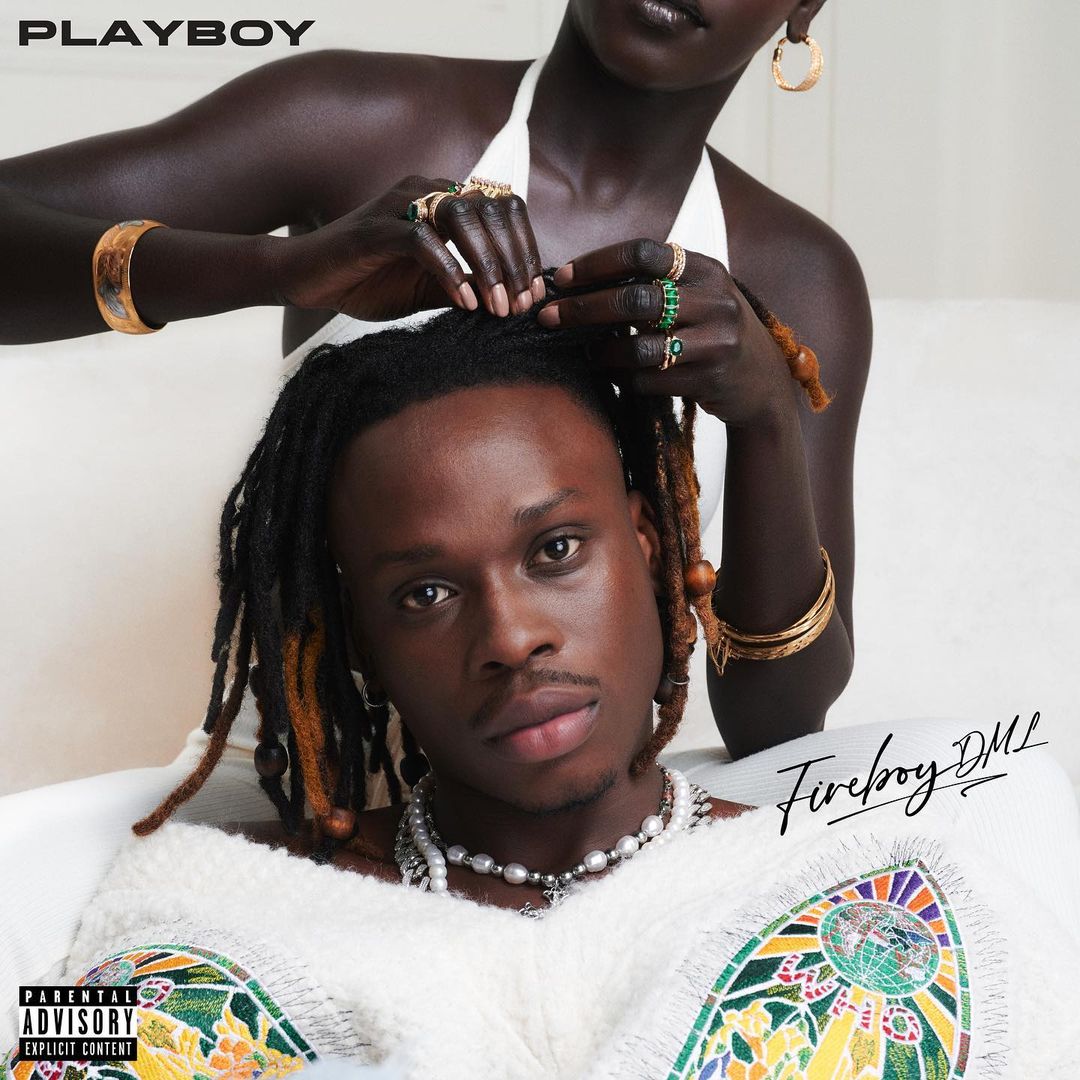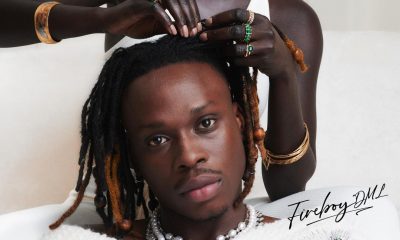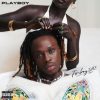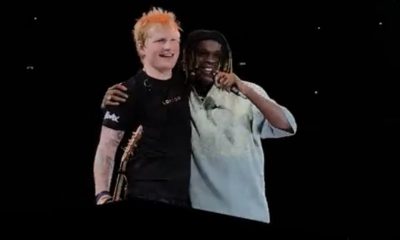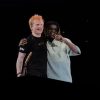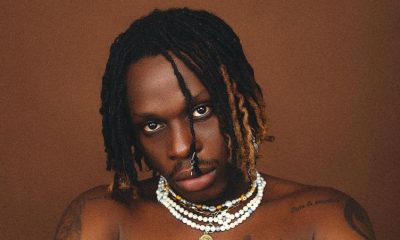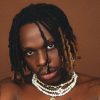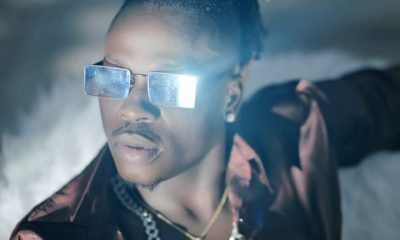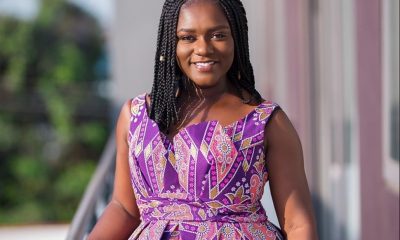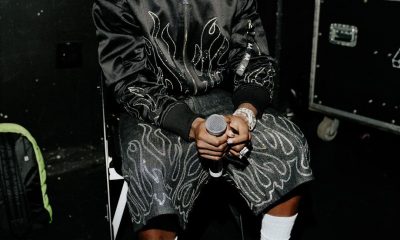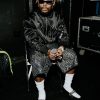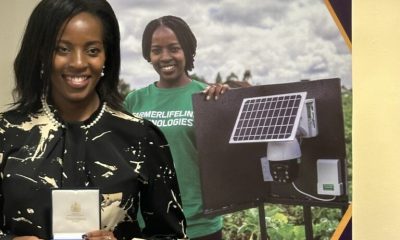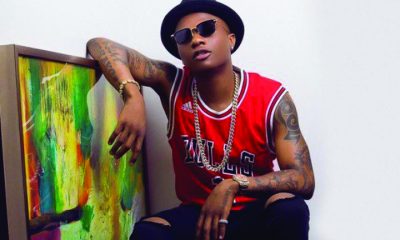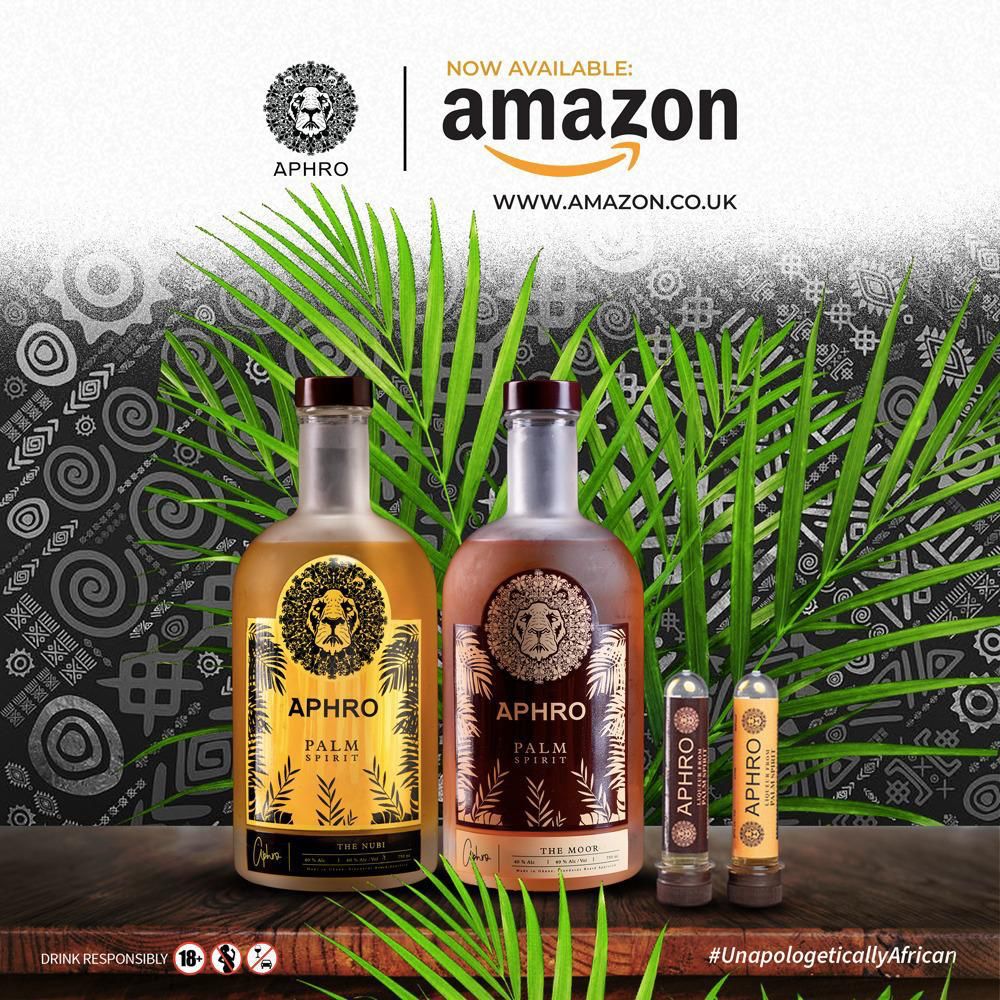“Playboy” Gets Fireboy DML Standing Tall
Fireboy DML’s metamorphosis as a groomed songwriter, with a nose for world-class lyricists, is expected.
Even before the release of his debut Laughter, Tears and Goosebumps in 2019, and in the pre-breakthrough days right behind the Jealous single, Fireboy DML was convinced about his stake in the future of the music industry in Nigeria. In university days, he boycotted classes to become a studio habitue. He risked dropping out of Obafemi Awolowo University in pursuit of his musical dreams. Anyone could have thought of his decision as a wild goose chase, but the singer’s audacity was abetted by his father’s concession to let him relocate to Lagos to try out his luck. Luck would then have his path ironed out. The rest, now, is history and food for motivational speakers.
It was only 9 months following the release of LTG that Fireboy’s prodigious talent reared its head again, and the end product was a sophomore, Apollo, its christening lending a bit more philosophical-introspective nuance to the then newborn art. For the third, tireless time, Fireboy DML has brought to the table a meal with thematic ingredients of love, passion, and flavours of merrymaking. The title, Playboy, pushes for the untethered lifestyle of a young man, one with insatiable tolerance for hedonism and lustfulness. But, forgiving the overpromising headline, the album does not stretch out to those implicit limits. Instead, it makes a mad dash for three-quarter appeal, because it is still the same persona that comes out all smitten in Adore, Sofri, and Diana, as we would find out later. Yet we still find this excusable because Fireboy DML figured out a way to retain the ethos of his self-styled Afro-Life sonic being.
One fact that is backed by some proof is Fireboy DML’s poetic inclinations and spirit of penmanship. In his teenage years, the singer was obsessed with writing poems, especially about imaginary lovers, attempts which, looking back, he now considers ‘corny’ and unworthy of remembrance. His music journey had started with those unsteady, unsure steps. A Facebook group, “POEMS FOR THE gODS” (labelled in that manner), remains home to some of the poems he shared seven years ago when he operated with an account that had his actual name Adedamola Adefolahan, Being a student of English in the prestigious OAU arguably contributed, in no underrated measure, to the sharpening of his poetic skills which he has successfully negotiated and transmuted into the lyrical cleverness associated with his current brand of music.
In a Twitter thread, which was in honour of 2020 World Poetry Day, Fireboy DML proclaimed Sir Walter Raleigh’s The Soul Errand as his favourite poem and Oscar Wilde as his favourite poet. Perhaps such classic poetry has, on the lowkey, been the placenta of the singer’s artistry. In the whole of LTG and Apollo, only the latter has songs, vis-a-vis Airplane, Afar, and Remember, that seem to carry the aura of Raleigh’s The Soul Errand. Airplane borrows from the poem’s soul-searching, self-critiquing mood. Afar spins off its truth-telling mission. Remember has lines such as “Tell them my story, my story, my struggles, and my glory” and “Tell them of the songs I sang” reprising the instructional style of Raleigh’s iconic verse. Somewhere, the senior poet wrote, “Go tell the court it glows… Go tell the church it shows…” Going into Playboy, Fireboy DML’s metamorphosis as a groomed songwriter, with a nose for world-class lyricists, is expected.
Playboy comprises fourteen tracks, playing across fickle themes, all of which are doled out within 43 minutes and 30 seconds. Unlike in his first album where Fireboy monopolises the vocals, without having any act snuck in for sake of sonic diversity, this current project reveals a less recalcitrant and more amiable side of the crooner. With Asake, Euro, Chris Brown, Ed Sheeran, Rema, and Shenseea joining the entourage on this musical expedition, Fireboy doubles down on the confidence earned in Apollo wherein he co-opted ideas from Olamide, Wande Coal, and D Smoke.
Fireboy starts off with some serious RnB reflection in Eskeez-produced Change. While the keyboard notably oversees the song’s instrumentation, he slices through alterations of stardom in a pacy but acceptably quasi-autobiographical manner. Exercising (“do some yoga”), resilience (“If life na war then I be soldier…”), fake friendships, (“Step inna the room and I got everybody smiling/Don’t know if they like me for my person or my talent”), women wahala, amongst others, are points raised in the struggle to have a balanced life.
On the second track, Bandana, produced by P.Prime, Fireboy is assisted by Ololade Asake. Only two years ago did Asake get his big break through the freestyle, Lady, which went viral, but the singer has amassed mainstream popularity ever since, with Sungba, Palazzo, and Omo Ope becoming household-to-street hits. Apart from being contemporaries, Fireboy DML and Asake share, at least, two other things in common: dreadlocks and an alma mater. While this knowledge may be thought inconsequential to their music, it comes as a welcoming coincidence in the duet Bandana as they muse over their coming of age in the entertainment industry.
“Bandana lori bi ti Tupac” is a recurring line in the song. Bandana was a part of the standout fashion sense of the GOAT activist-rapper, Tupac Shakur, during his lifetime. Fireboy also clearly identifies as a huge fan of the American legendary artiste, as he recently admitted this on The Zeze Millz Show.
In Ashawo, Fireboy DML exposes his vulnerabilities and his susceptibility to situationships. It is at this point we begin to see the image of an emotionally fickle young man who, despite tendering an affectionate apology for his sexual misdeeds, does so with less remorse than expected. But the fledgling discourse on emotional instability in Ashawo snowballs into a grim state of romantic impasse in the titular track, Playboy, where Fzireboy prefers all-male hangouts and the globetrotting affixed to his celebrity status.
The music video of Playboy, directed by TG Omori and released 2 months earlier, has matching stamina for the lyrics. One time, Fireboy keeps a distance from willing, playful beauties. Another time, with moral support from Rema, he wins the day in a casino, leaving everyone else, including a female competitor, outwitted. But the last scene is reconciliatory when the lady, given a half-chance by the singer, hops into his car.
Next comes Adore, produced by P.Prime, and which features American rapper, Euro. With the song combing through rap and Afrobeats elements, the duo reflects on an estrangement that is difficult to get over. With Sofri, Fireboy reprises a chunk of his lover-boy self, professing love towards the eponymous persona. Blaise Beats takes charge of the production here, while Awele Michael handles the guitar over the song. Diana is eclectic even in its chiefly RnB, phantom-sponsored quality, as African American heavyweight, Chris Brown, and Jamaican dancehall songstress, Shenseea, are enlisted for a threesome that should appeal to black culture. The song leans comfortably into an obsessive-romantic subplot. The goal is to avert a love-gone-awry situation, as the artistes take turns to render placating lines.
Beginning the second half of the album is Compromise, another bromance and love pledge. What probably stands out is the Rema verse delivered with Wizkid-esque mannerism. The next track, Timoti bears a crude, street-sensitive chorus that one cannot help but offer the song the designation of an unpromising brainchild beyond its feel-good momentariness. If Peru, which follows up, had not become a global anthem, for promotion’s sake, it could have been consigned to the same fate as Timoti. But this freebooting part of Fireboy in Peru deserves the global outreach it has gotten.
Before the Ed Sheeran-Peru reverie, Fireboy experiments with highlife in Afro Highlife and dancehall reggae in Havin’ Fun. With Afro Highlife, produced by Zaki Amujei, the singer tilts in the direction of contemporary highlife torchbearers like Adekunle Gold and Flavour. Jazz drums are the major highlights of Glory as the singer situates himself on the outskirts of Afrobeats. One eye-rolling moment in the song is when the singer tells whoever cares to listen, “If you’re pulling me now/Please get out of my way/I’m on a new level now”. The singer boasts about his accomplishments, so cheers to another grass-to-grace narrative.
Above all, Playboy gets Fireboy DML standing tall. Only time will tell whether this heartwarming conceit and this emerging disbelief in overrated chivalry will endure.
By:Adedamola Adedayo


